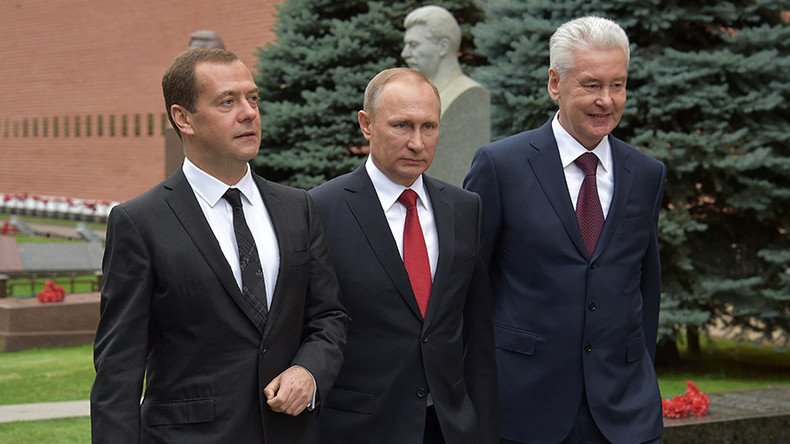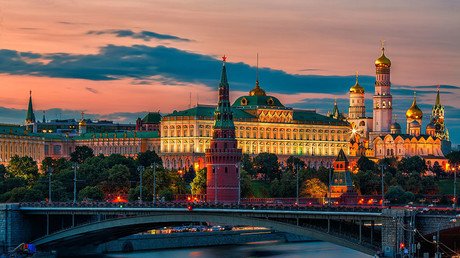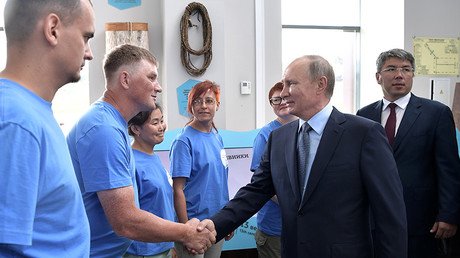PM Medvedev closest to Putin in fresh rating of influential Russian politicians

A new study comparing the performance of top level Russian politicians and estimating their ability to succeed the president puts Prime Minister Dmitry Medvedev in first place, with Moscow Mayor Sergey Sobyanin taking second.
In its research, the St. Petersburg Politics foundation measures such parameters as publicity, political activity, ability to evade conflicts, control over groups of people or flows of assets, public expectations and the intensity of PR campaigns targeting a particular official.
The foundation’s analysts also counted successes and failures attributed to the officials and the frequency of their meetings with President Vladimir Putin.
Medvedev topped the rating with 21 points and researchers announced him “the most likely successor to the president,” noting in comments that there are several possible scenarios of this succession – from running for presidency to remaining the head of the cabinet or even one of the deputy premiers.
Sobyanin was second with 19 points, the researchers stating that he had significantly improved his position over 13 years of presence in the top echelons of power. The governor of the Tula Region and former head of the presidential security service department of the Federal Protective Service, Aleksey Dyumin, came in third with 18 points.
Several senior officials shared fourth place with 15 points each. These are the upper house chair Valentina Matviyenko, former finance minister and current head of an influential think tank Aleksey Kudrin, the head of the Russian Presidential Administration Anton Vaino, and one of his key deputies Sergey Kiriyenko.
Lower house speaker Vyacheslav Volodin and the head of Russian state oil corporation Rosneft Igor Sechin got 14 points each.
Researchers have put Chechen leader Ramzan Kadyrov in 13th place with 14 points, but noted that they had failed to receive any data on Kadyrov’s recent meetings with Putin.
Anti-corruption blogger turned political activist Aleksey Navalny got 10 points and was placed in 18th place.
The last, 20th place, in the research was given to “a dark horse.” The head of the St. Petersburg Politics foundation, Mikhail Vinogradov, explained this move by the fact that the current political elite were constantly tempted to try to revamp their image by large-scale staff rotations that could bring presently unknown people on the top of political ratings.
According to a public opinion poll conducted by the independent Levada Center in early July, 66 percent of Russians want Putin to remain president after the 2018 elections. Eighteen percent said that they would prefer somebody else in this position and 16 percent declined to give an unambiguous answer.
A similar poll conducted by Levada in early May showed that 64 percent of Russians wanted Putin to remain president for another term, while 22 percent wanted him replaced.
Putin has not yet announced his plans concerning the 2018 presidential poll, but hinted in early August at the possibility of running when he promised “to think about it” to a group of people who asked him to register as a candidate.














